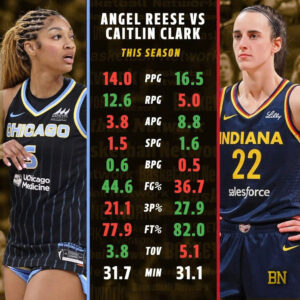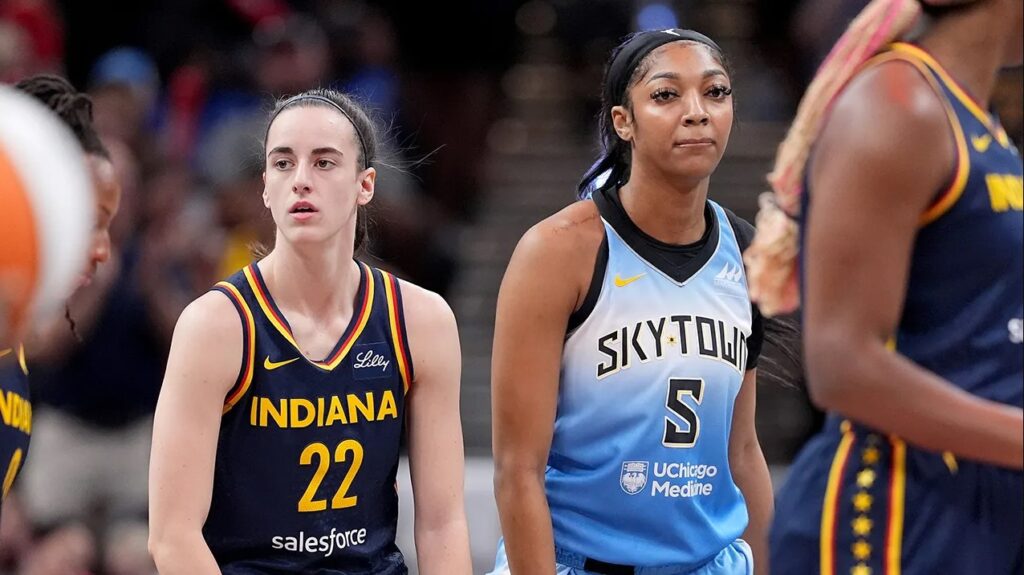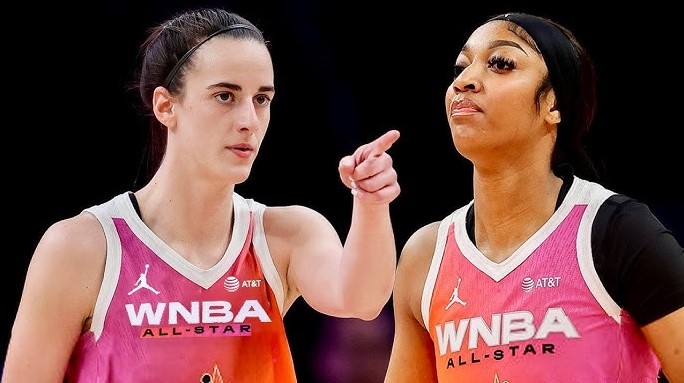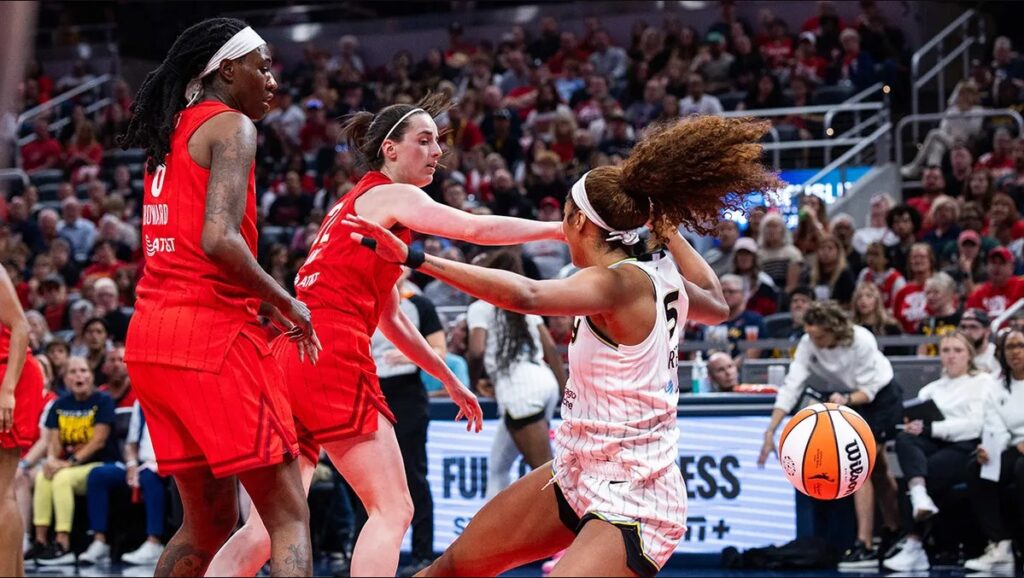Angel Reese vs Caitlin Clark: The Statistical Truth Behind the WNBA Rookie Debate
While the basketball world continues to celebrate Caitlin Clark as the transcendent rookie who brought unprecedented attention to women’s basketball, the numbers are telling a completely different story that might shock even the most devoted fans. The narrative surrounding Clark’s dominance has been so overwhelming that it has overshadowed what Angel Reese has been quietly accomplishing on the court, and when you dive deep into the statistics, a fascinating picture emerges that challenges everything we thought we knew about this rookie class.

The most glaring statistical reality that jumps off the page is the turnover differential between these two phenomenal players, with Clark leading the entire league in turnovers at an alarming rate of 5.1 per game while Reese sits at a more controlled 3.8 turnovers per contest. This isn’t just a minor statistical footnote – it’s a fundamental indicator of basketball IQ, decision-making under pressure, and the ability to maintain composure when the stakes are highest, all qualities that separate good players from truly great ones.
When we examine the broader context of their respective seasons, it becomes increasingly clear that Reese has been the more consistent and reliable performer, demonstrating a level of basketball maturity that often takes years to develop at the professional level. Her ability to impact games without needing to dominate the ball or force difficult shots has been a testament to her understanding of team basketball and her willingness to do the dirty work that doesn’t always show up in highlight reels but absolutely shows up in winning basketball.

The turnover disparity becomes even more significant when you consider that both players are handling similar offensive responsibilities for their respective teams, yet Reese is managing to maintain better ball security while still being an aggressive offensive threat. This statistical advantage suggests that Reese has adapted to the professional game’s speed and physicality more effectively than Clark, who despite her undeniable talent, continues to struggle with the decision-making aspects that are crucial for sustained success at the highest level.

Beyond the turnover numbers, Reese’s overall impact on winning basketball has been consistently undervalued in the national conversation, despite her ability to affect games in multiple ways that extend far beyond traditional scoring metrics. Her rebounding prowess, defensive intensity, and leadership qualities have translated into tangible team success, while Clark’s individual brilliance hasn’t always resulted in the same level of collective achievement for her squad.
The most compelling argument for Reese having a superior season lies not just in what she’s doing on the court, but in how she’s doing it – with a level of efficiency and basketball intelligence that suggests she’s already operating at a higher level of professional readiness than many initially expected. Her ability to maximize her impact while minimizing mistakes has been the hallmark of her rookie campaign, and it’s exactly the type of foundation that championship-caliber players build their careers upon.

What makes this comparison even more intriguing is how it reflects two completely different approaches to excellence in professional basketball – Clark’s flashy, high-risk, high-reward style versus Reese’s methodical, efficient, and team-first approach to dominance. While Clark’s style generates more headlines and social media buzz, Reese’s approach has consistently produced better results when it comes to the fundamental aspects of winning basketball games at the professional level.
The statistical evidence is becoming increasingly difficult to ignore, and it paints a picture of Angel Reese as not just a worthy competitor to Caitlin Clark, but potentially the superior rookie when you evaluate their contributions through the lens of overall team success and basketball efficiency. As the season progresses and these numbers continue to accumulate, the conversation about who’s truly having the better rookie season might need to shift dramatically from the popular narrative to what the statistics are actually revealing about these two remarkable athletes.